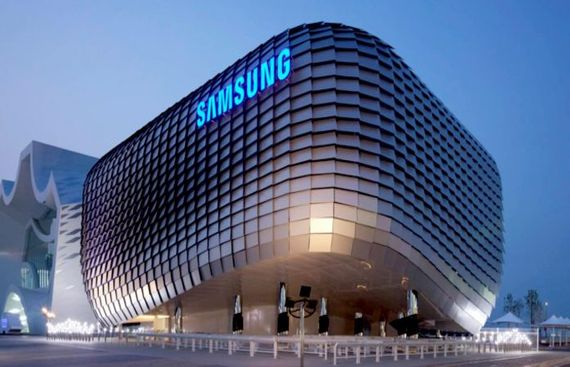Samsung to focus on its core amid rising uncertainties

Sometimes in the world of business, the best defence is a good offence, and it seems like Samsung Electronics Co. Vice Chairman Lee Jae-yong wanted to share this message with a handful of key figures at the South Korean tech giant to fend off rising challenges to its business.
Lee held a meeting with five heads of Samsung's major divisions over the weekend to discuss its business strategy amid a weak memory chip market and intensifying trade conflict between the US and China, Yonhap news agency reported on Monday.
The de facto leader of the world's largest memory chip and handset maker vowed to spur innovation in key technologies and foster new growth engines to maintain a leading position in the rapidly changing technology industry.
"We shouldn't be swayed by short-term opportunities and performances," Lee was quoted as saying during the meeting with senior officials at a production line in Hwaseong, south of Seoul, on Saturday. "Samsung should focus on securing fundamental technologies for long-term businesses in a rapidly changing environment."
The meeting came as Samsung faces headwinds from the downcycle of the memory chip and display businesses, coupled with the sluggish global smartphone market.
The semiconductor business, which accounts for over 70 per cent of its total revenue, has been in a downward spiral, with falling prices of DRAM and NAND flash chips this year. Its display division logged an operating loss in the first quarter, turning to the red for the first time since the first quarter of 2016.
Lee reaffirmed that the company will maintain its earlier plan to invest 133 trillion won ($112 billion) in the non-memory chip sector to become the world's top industry player by 2030, calling it "the engine of the fourth industrial revolution."
The rare statement directly quoting the Samsung heir came at a time when the US ban on Chinese tech giant Huawei's equipment is complicating its business outlook in the closely interconnected global supply chain.
Samsung earns over half of its money from the US and China, leaving the South Korean tech firm more vulnerable to prolonged trade conflicts between the world's two largest economies.
While some market watchers held an optimistic view on Samsung's smartphone and network sales in the wake of Huawei's struggle, the Korean firm is taking a cautious stance as its value chain is interwoven with the Chinese company, a major client for its memory chips.
The biggest challenge may be how uncertainty can hit their businesses any time, prompting Samsung officials to arm the company with the necessary tools to survive potential threats.
"The meeting was held to align the business strategy in line with the changing global environment and make sure the massive investment is made without delay," said Kim Ki-nam, the head of Samsung's device solution division overseeing
the global operation of its semiconductor business, without elaborating.
Meanwhile, Samsung's leadership is under pressure from the expanding prosecution investigation into Samsung BioLogics Co., a bio health care unit accused of accounting fraud.
Last month, prosecutors indicted two vice presidents of Samsung Electronics on allegations of masterminding destruction of evidence related to Samsung BioLogics, putting a burden on the 51-year-old Lee, who is also awaiting the Supreme Court's ruling on his bribery case.
Civic groups claimed the alleged accounting fiasco at BioLogics was ultimately intended to enhance the Samsung heir's control of the sprawling group by inflating Cheil Industries Inc.'s stake in Samsung BioLogics ahead of its merger with Samsung C&T Corp. in 2015.
Read more news:
Growth in infrastructure key for job creation
New AI system helps drones land more quickly
